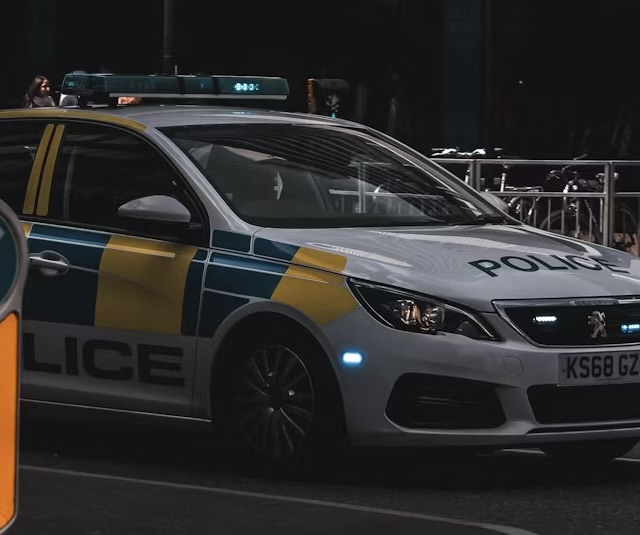On the day drivers face six penalty points and a £200 fine if they are caught using a handheld phone at the wheel for virtually any reason after a loophole in the law was closed, new RAC research shows four-in-10 (43%) aren’t aware of the changes being introduced and just 2% believe it will be very effective in improving driver behaviour.
Before today, a loophole existed where drivers might only receive a maximum of three penalty points and a £100 fine for using a handheld phone for actions that didn’t involve any form of telecommunication – for instance, for scrolling through music playlists or taking a photo or video. In November 2021, the Government confirmed that the law would be toughened to ensure almost any use of a handheld phone would be punishable with six points and a £200 fine.
While most of the 2,000 drivers surveyed by the RAC (75%) are fully supportive of the change in the law, many are sceptical as to how effective it will be in getting offending drivers to change their behaviour and make the roads safer. Just 2% of drivers said they thought it will be ‘very effective’, with 49% thinking it would be ‘partly effective’ and a similar proportion – 45% – saying it won’t be effective.
Of those who have concerns the roads won’t be made safer by the changes that come in today, 86% say that it’s because some drivers will always persist in using a phone illegally regardless of the law, while seven-in-10 (70%) say the problem is drivers don’t feel they’re likely to get caught in the first place. Nearly three-in-10 (28%) fear not enough will be done to let drivers know about the changes.
When it comes to what drivers think needs to be done to reduce the number of people using a handheld phone illegally at the wheel, drivers are split. Almost equal proportions believe that more visible police enforcement (23%), a high-profile advertising campaign (24%) and even tougher laws (26%) – such as the threat of a driver losing their licence altogether if caught. A fifth meanwhile (20%) would like to see cameras used to catch drivers acting illegally.
RAC spokesperson Rod Dennis:
“It’s clear that most drivers are supportive of the law being strengthened to make it easier to prosecute drivers who put lives at risk by using a handheld phone – after all, using a phone to take a photo or look at a playlist is at least as distracting as using it to talk or text.
“But while we welcome today’s law change and very much hope it will make a difference, it’s arguable that it will only be truly effective if it’s rigorously enforced. If some drivers still don’t feel they’re likely to be caught, then simply making the law tougher isn’t going to have the desired effect of making our roads safer. That explains why such a tiny proportion of drivers – just 2% – think the new changes will be very effective in changing behaviour.
“The dial really needs to be turned up when it comes to enforcement, and that means police forces having the resources and technology they need to more easily catch those drivers that continue to flout the law. Cameras that can automatically detect handheld phone use exist and are in use in other countries, so we think it’s high time the UK Government evaluated this technology with a view to allowing police forces to deploy it at the earliest opportunity.”
Previous research for the RAC Report on Motoring found that more than one-in-10 younger drivers admitted to taking a photo or video while driving, while 6% said they had played a game on a handheld phone while at the wheel.**
From the UK Government:
From today (25 March 2022), motorists are breaking the law if they use a handheld mobile phone behind the wheel for any use, including to take photos or videos, scroll through playlists or play games – as the government closes a loophole previously exploited by dangerous drivers to escape conviction.
Anyone caught using their handheld device while driving could face a fine of up to £1,000 as well as 6 points on their licence or a full driving ban.
The government’s award-winning THINK! team is also today launching an £800,000 awareness campaign to remind drivers not to use a handheld phone at the wheel and of the penalties if choosing to ignore this new law.
Millions of young people will start seeing the adverts in the coming weeks, showing friends appearing in the back seat to intervene when the driver becomes tempted to use their phone behind the wheel.
The campaign will run across video on demand, online video, social media channels and radio in England and Wales until the end of April.
Transport Secretary Grant Shapps said:
I will do everything in my power to keep road-users safe, which is why I am taking a zero-tolerance approach to those who decide to risk lives by using their phone behind the wheel.
I’m ensuring anyone who chooses to break this vital law can face punishment for doing so and we’ll continue our efforts to ensure our roads remain among the safest in the world.
Drivers are able to make contactless payments, for example, at drive-throughs, so long as their vehicle is stationary. They can also still use a device ‘hands-free’ while driving if it’s secured in a cradle, allowing motorists to use their phone as a sat-nav.
They must, however, always take responsibility for their driving and can be charged with an offence if the police find them not to be in proper control of their vehicle.
Updates to the law follow a public consultation that found 81% of respondents supported proposals to make it easier for culprits to be prosecuted.
The law previously only applied to so-called ‘interactive communication’ such as making a call, as it was written before mobile phones could be used for more complicated tasks, such as taking videos. Previously those caught using their mobiles at the wheel have in some cases been able to escape conviction by claiming that they weren’t using them for interactive communication.
The update to the law ensures nobody will be able to use the loophole to escape conviction.
This is the latest move in the government’s drive to bolster road safety, with the Department for Transport’s £100 million Safer Roads Fund recently winning the prestigious Prince Michael of Kent International Road Safety Award.
Contains public sector information licensed under the Open Government Licence v3.0.



